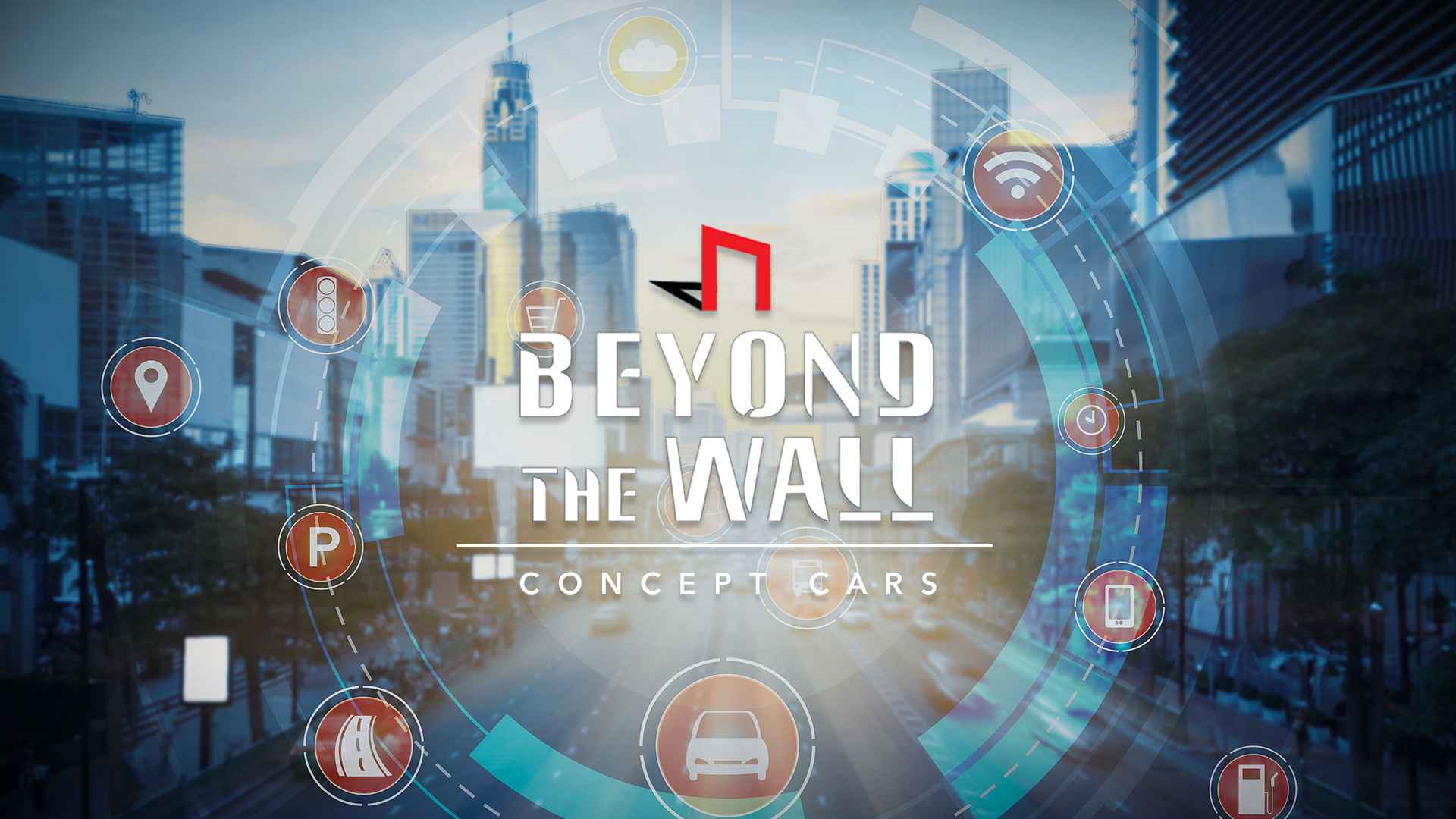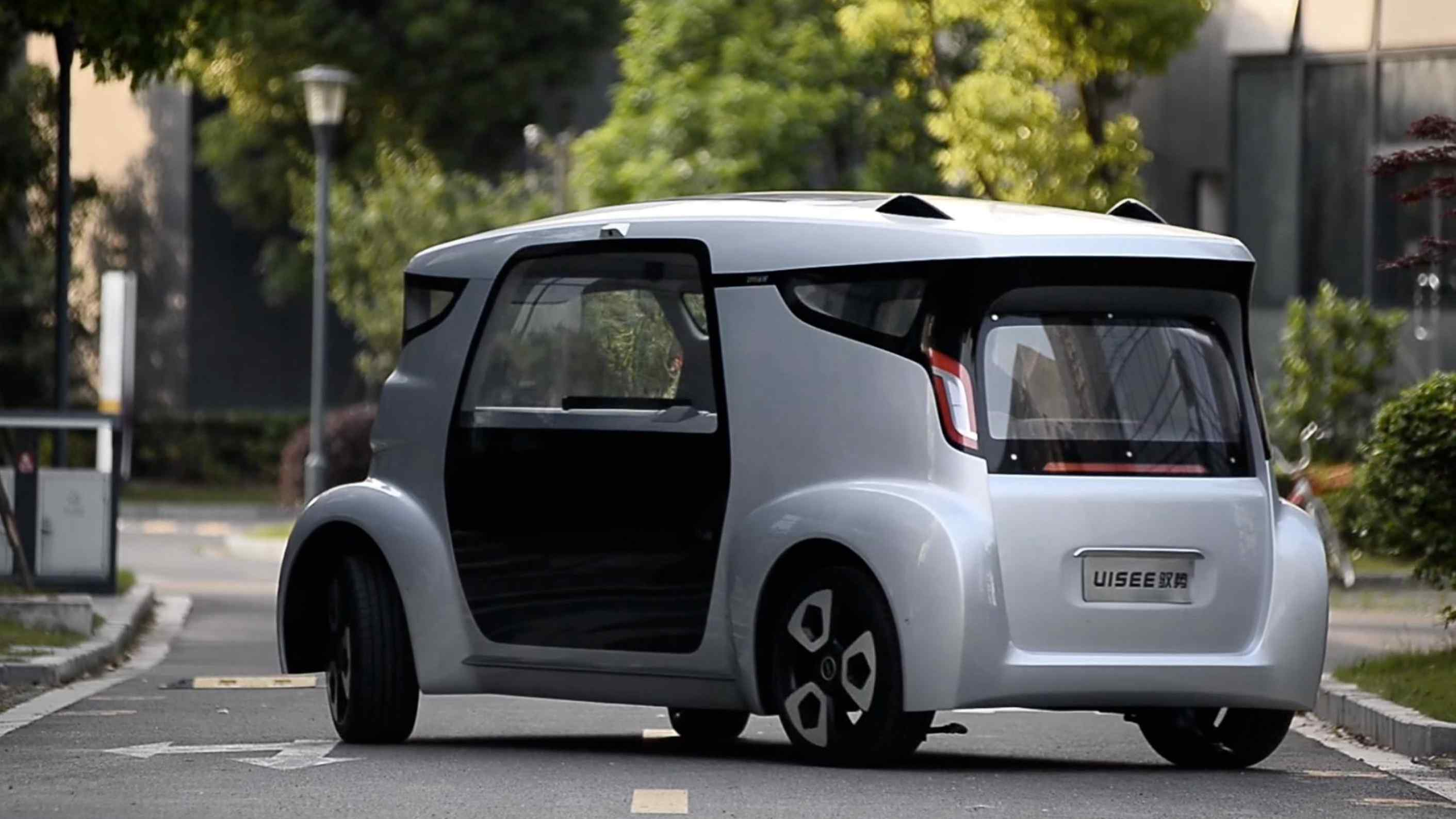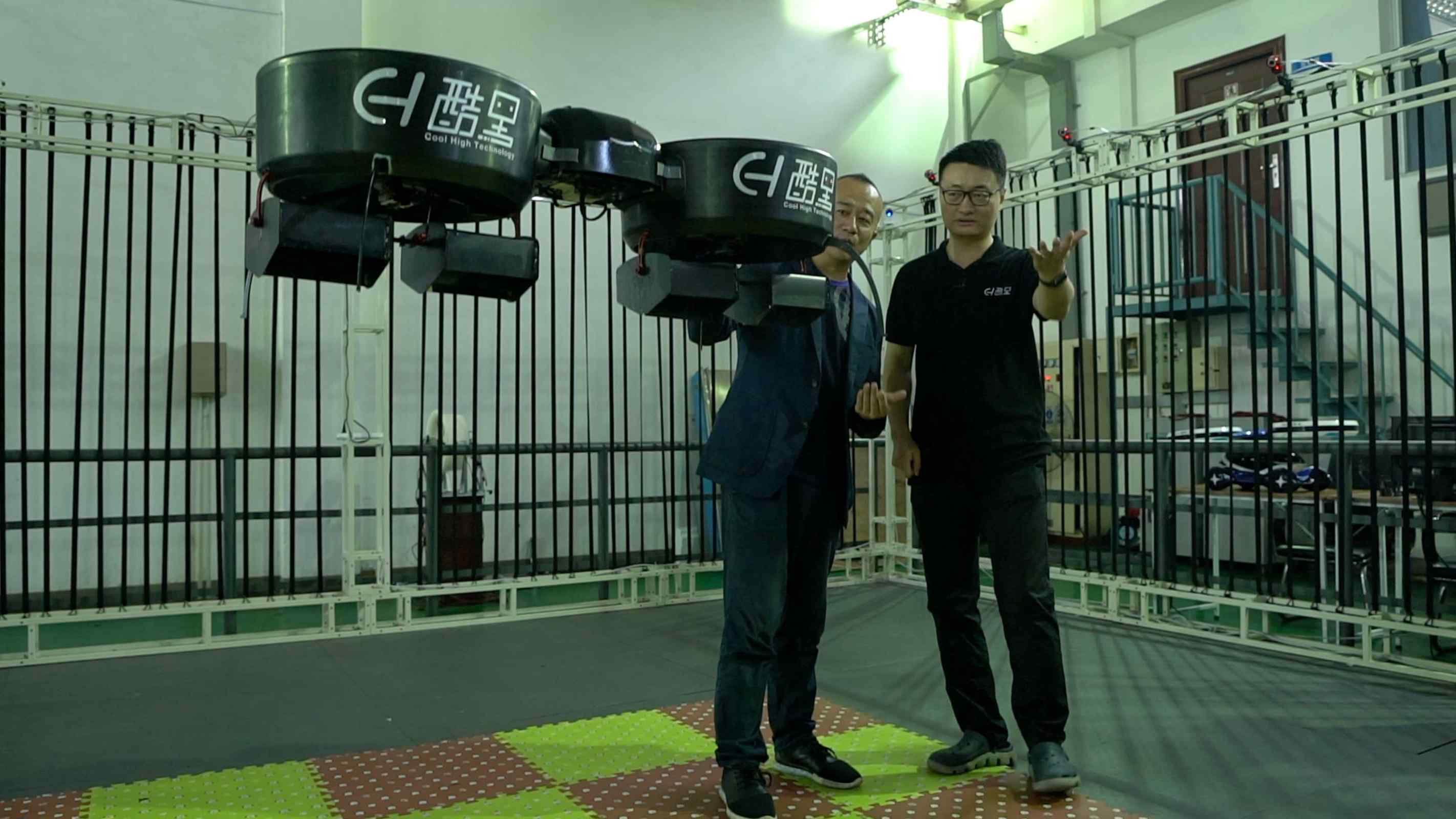
China
12:14, 18-Sep-2018
Reporter's Diary: A new upward mobility
Updated
11:28, 21-Sep-2018
By Han Bin, Huang Xiaodong
05:02

Cars overtaking our cities
China's high speed of development has also brought along challenging problems for its urbanization drive. Pollution and traffic jams are just two of many problems. But new technologies are redefining future transport. Many of the Chinese scientists' groundbreaking visions and practice may bring a revolutionary change to the cities of the future. They believe urban transport needs a new direction.
Wu Gansha, founder of UISEE Technology, said that to completely reduce the traffic jams, a systematic approach is needed. He said, "To reduce the number of vehicles through car sharing, each vehicle needs to be intelligent. We need a smart city brain, so that all the vehicles are scheduled based on a global and optimized plan."

UISEE Technology's driverless car on display /Photo provided by UISEE
UISEE Technology's driverless car on display /Photo provided by UISEE
Xu Bin, founder of Cool High Technology, said if we can increase travel efficiency, the total amount of human travel will increase. He said, "Building a three-dimensional city with three-dimensional traffic might be a solution for congestion in future cities. China has some certain advantages over other countries in [developing] future flying cars, such as the trend of mega-cities."
Big designs on the car market
Some designs are reshaping traditional road building and driving concepts into a three-dimensional future with intelligent driving. A lot of visions are still in the experimental phase, but they are shaping the concept of mobility far beyond highways and express trains.

Xu Bin, founder of Cool High Technology, shows the latest model of a flying car to CGTN correspondent Han Bin. /CGTN Photo
Xu Bin, founder of Cool High Technology, shows the latest model of a flying car to CGTN correspondent Han Bin. /CGTN Photo
"Some of its related industrial structures, like cloud-based big data scheduling, communication network technology based on 5G, as well as new technologies such as driverless cars, new energy and clean energy vehicles, batteries, motors, electric control and etc., all are experiencing rapid development in China. So I think this concept will probably come into reality in China before other countries," said Xu.
"We focus more on the interaction, instead of on the manipulative control. China's auto industry has been a follower, but now, because the technology is revolutionary, we can leave behind all the legacies, and overtake on a corner," said Wu of the UISEE.

Wu Gansha, founder of the UISEE, talks about future car concept to CGTN correspondent Han Bin. /CGTN Photo
Wu Gansha, founder of the UISEE, talks about future car concept to CGTN correspondent Han Bin. /CGTN Photo
Chinese scientists say it's more than just creating new cars. The only limit is the human mind. With policy incentives, all the science fictions of the past could redefine the future of transport in China.
The expectations are high. The question is: How long it will take to make those happen?

SITEMAP
Copyright © 2018 CGTN. Beijing ICP prepared NO.16065310-3
Copyright © 2018 CGTN. Beijing ICP prepared NO.16065310-3